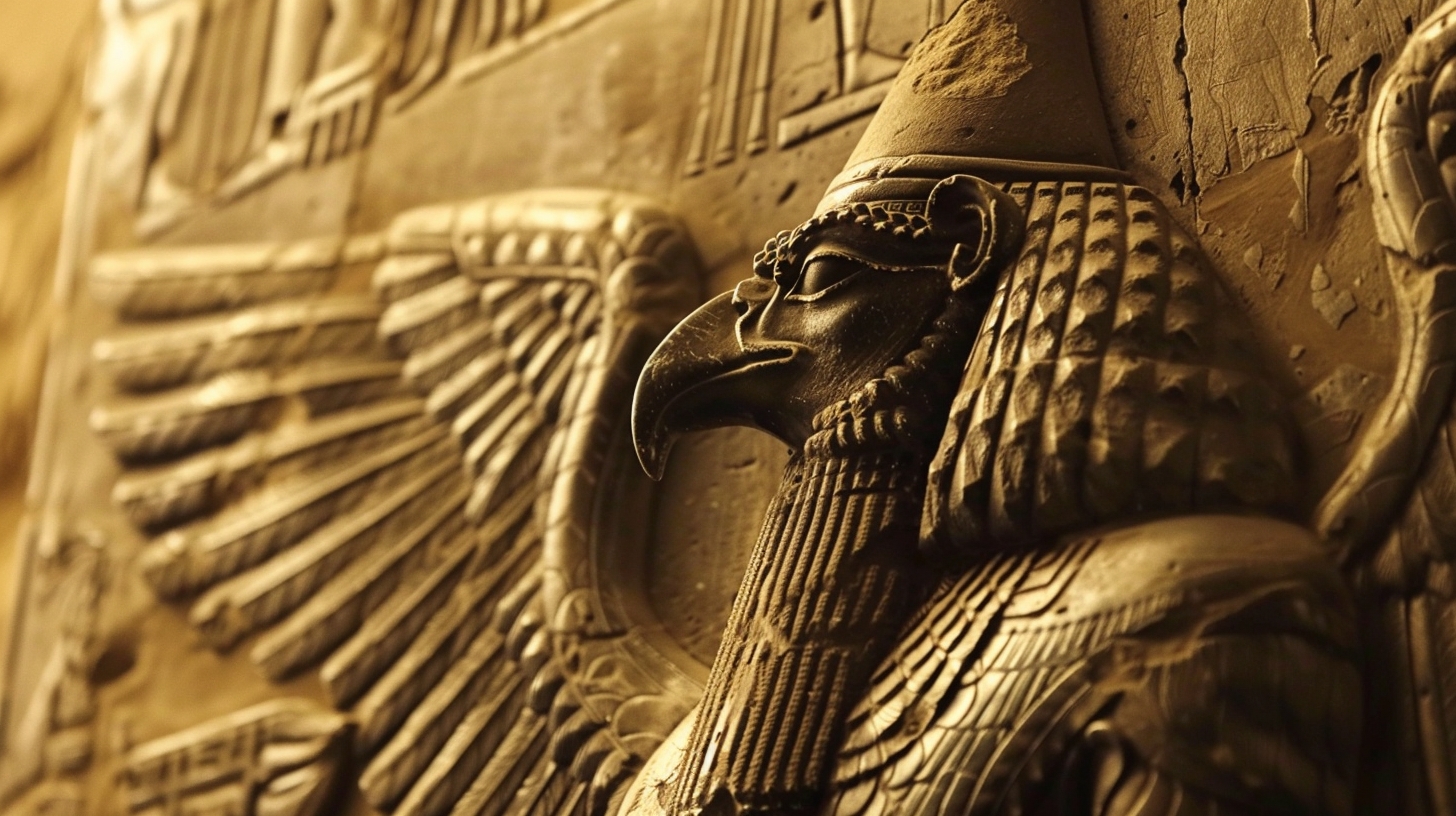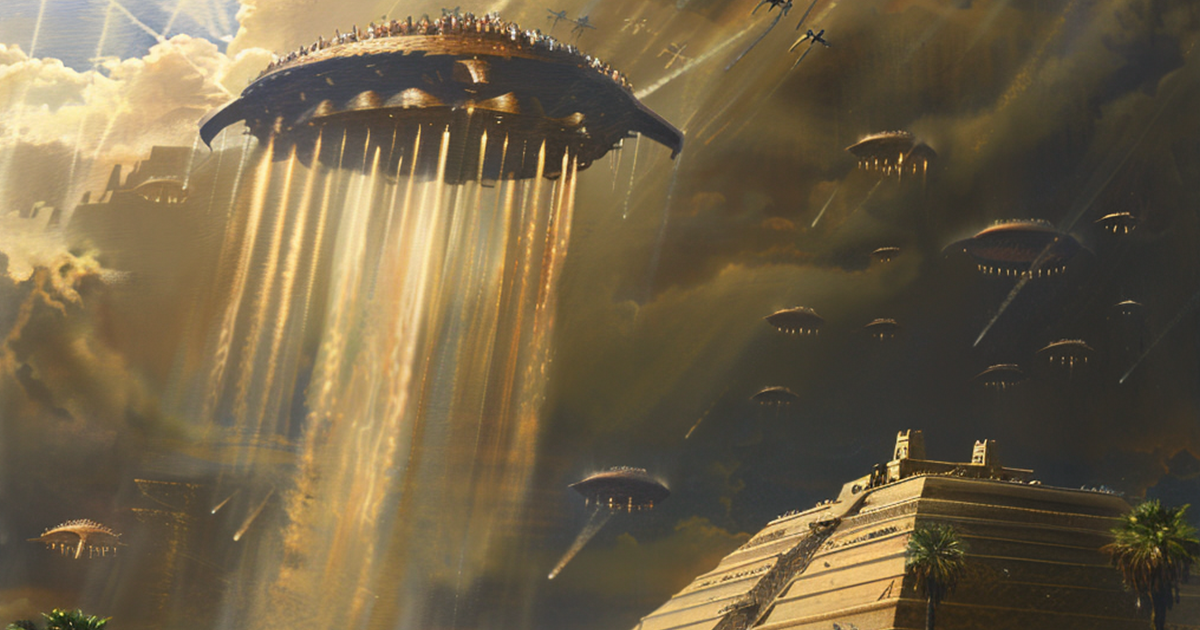The mythology of ancient Sumeria is a rich tapestry woven with tales of gods and goddesses who shaped the world and influenced the lives of mortals. Among the most intriguing motifs in Sumerian mythology are accounts of divine beings descending from the sky, sparking speculation about possible extraterrestrial visitations in antiquity. Delving into these myths offers a fascinating glimpse into the beliefs and worldview of one of the world’s earliest civilizations, while also inviting us to contemplate the possibility of otherworldly beings influencing human history.
Central to Sumerian mythology is the pantheon of gods and goddesses who were believed to inhabit the heavens above. These deities played a central role in Sumerian cosmology, governing various aspects of the natural world and human affairs. Among the most prominent figures in the Sumerian pantheon are Anu, the god of the heavens, and his children Enlil, the god of the air, and Enki, the god of water and wisdom.
One recurring theme in Sumerian mythology is the descent of these divine beings from the sky to interact with humanity. According to ancient texts such as the “Enuma Elish” and the “Epic of Gilgamesh,” gods were often depicted as descending from the heavens in flying vehicles or celestial chariots known as “shamash,” which were said to emit fire and smoke. These descriptions bear striking resemblance to modern accounts of unidentified flying objects (UFOs) and have led some researchers to speculate about possible extraterrestrial origins.
Proponents of the theory that Sumerian myths describe extraterrestrial visitations argue that the similarities between ancient and modern accounts of celestial beings suggest a continuity of experience that transcends time and cultural boundaries. They point to the consistency in the depiction of gods descending from the sky across various cultures and time periods, suggesting that these accounts may be based on actual encounters with advanced beings from other worlds.

Furthermore, supporters of this theory highlight the advanced knowledge and technology possessed by the Sumerians, which they believe may have been the result of interactions with extraterrestrial visitors. The Sumerians were pioneers in various fields, including astronomy, mathematics, and irrigation, achievements that some attribute to outside influences rather than purely human ingenuity. According to this interpretation, the gods described in Sumerian mythology may have been extraterrestrial beings who shared their knowledge and technology with humanity.
In addition to textual accounts, some researchers point to archaeological evidence that they believe supports the theory of ancient extraterrestrial visitations. For example, the discovery of ancient artifacts depicting humanoid figures wearing what appear to be spacesuits or helmets has led some to speculate about possible encounters between ancient civilizations and beings from other worlds. Similarly, ancient artwork and carvings that depict strange flying objects or beings resembling modern spacecraft have fueled speculation about the possibility of extraterrestrial contact.
However, skeptics offer alternative interpretations of Sumerian mythology, cautioning against interpreting ancient texts and artifacts through a modern lens. They argue that the gods described in Sumerian mythology were symbolic representations of natural forces or abstract concepts rather than literal beings from another world. According to this perspective, the descent of gods from the sky may be interpreted as metaphorical or symbolic rather than evidence of extraterrestrial visitations.
Furthermore, critics emphasize the importance of understanding the cultural and religious context in which Sumerian mythology was created. In ancient Mesopotamian culture, gods and goddesses played a central role in religious rituals and ceremonies, and myths were often used to explain natural phenomena or justify social hierarchies. Therefore, the depiction of gods descending from the sky may have been a way to assert divine authority or establish the legitimacy of rulers rather than a literal account of extraterrestrial encounters.
Another perspective on Sumerian mythology suggests that the descent of gods from the sky may be interpreted as symbolic of humanity’s innate curiosity and desire to explore the unknown. In this interpretation, the gods represent the mysteries of the cosmos, and their descent from the heavens symbolizes humanity’s quest for knowledge and understanding of the universe.
In conclusion, the interpretation of Sumerian myths describing gods descending from the sky remains a subject of debate and speculation among scholars and enthusiasts. Whether these accounts are based on actual encounters with extraterrestrial beings, symbolic representations of natural forces, or expressions of human curiosity and imagination, one thing remains certain – the myths of ancient Sumeria continue to intrigue and inspire wonder, inviting us to contemplate the mysteries of the cosmos and our place within it.

18 thoughts on “Exploring Sumerian Mythology: Gods from the Sky and Extraterrestrial Encounters”
Comments are closed.